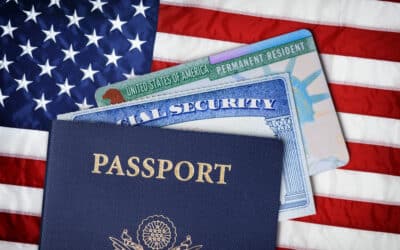Henry Kissinger died last Wednesday. So far, I’ve been handling the grief pretty well.
Kissinger was the most esteemed war criminal in American history. As Richard Nixon’s National Security Advisor, Kissinger summarized the president’s order for bombing Cambodia: “Anything that flies on everything that moves.” In a 1972 conversation captured by the secret White House taping system, Nixon told Kissinger, “The only place where you and I disagree…Is with regard to the bombing. You’re so goddamned concerned about the civilians and I don’t give a damn. I don’t care.” Kissinger replied, “I’m concerned about the civilians because I don’t want the world to be mobilized against you as a butcher.” In a later conversation with Nixon, Kissinger boasted, “Once we’ve broken the war in Vietnam…then no one will give a damn about war crimes.”
Regardless of the atrocities he spawned, Kissinger was endlessly feted by the establishment. Humorous song writer Tom Lehrer aptly observed, “Political satire became obsolete when Kissinger was awarded the Nobel Peace Prize.”
Kissinger accounted for one of the biggest road trip surprises I ever received, at least from The New York Times. On Thanksgiving Day, I was driving 300 miles back home after a visit to kinfolk in southwest Virginia. In the hundred mile stretch from Roanoke to Harrisonburg, there was damn little along Interstate 81 in those days.
I stopped at a sprawling Sheetz gas station at the Staunton exit, “strung out from the road,” as the Bob Seeger song goes.
Things were looking grim for America at that time. George W. Bush was lying the nation into war against Iraq. Most newspapers had a “Non-Warmongers Need Not Apply” standard, so my op-eds were mostly striking out. I did get a hit the prior month in USA Today headlined, “Moral High Ground Not Won on Battlefield.” I wrote that “a desire to spread freedom does not automatically confer a license to kill.” I warned, “Perpetual war will inevitably mean perpetual repression. When Bush attacks foreign nations, his administration will also be striking against American freedoms.”
But I saw that Bush administration fearmongering was stampeding the media and most of the American public. I was astounded to hear Bush and Vice President Dick Cheney portraying Saddam Hussein as the culprit behind the 9/11 attacks—the biggest load of crap that topped all the previous shameless deceits. Defense Secretary Donald Rumsfeld claimed to possess “bulletproof” evidence linking Saddam and Al Qaeda. But the “bullet” was so sensitive that it could never be exposed to sunlight.
But there were a few rays of hope in those days. For instance, former Nixon acolyte Henry Kissinger was getting hounded by protestors when he spoke in foreign nations. There seemed to be a growing clamor to indict him for the genocides he helped inflict on Cambodia, Vietnam, Indonesia, etc. Was the civilized world on the verge of taking a stand against the wrongful killing of millions of civilians?
After getting my 32 ounce Dr. Pepper and a cheap cigar to propel me northward, I ambled by the Sheetz newspaper stand and holy smoke!
The New York Times had a big picture of Kissinger above the fold and his name was trumpeted in a banner headline.
So that sonuvabitch was finally indicted on war crimes?! Make my day!
Then I got closer, squinted, and read the headline: “President Names Kissinger to Lead 9/11 Commission.” On Thanksgiving Eve, George Bush had designated Kissinger as the chairman of the new National Commission on Terrorist Attacks on the United States.
At that moment, I realized that maybe George W. didn’t really want the truth to come out about 9/11. Actually, the Bush administration had fought vociferously to block congressional proposals for any independent commission. And when Congress proved untamed on this issue, Bush sought to rig any investigation by appointing Kissinger as its chief. Kissinger was notorious for stiffing and misleading congressional and other investigations when he worked in the Nixon and Ford administrations. What better choice than a Grand Deceiver to keep mere facts from cluttering up the Bush administration’s salvation storyline?
But the Kissinger fix collapsed. All the 9/11 Commission panelists were obliged to disclose the identity of any person, company, or foreign government that had paid them more than $5,000 in the prior two years. But Saint Henry refused to disclose the list of the foreign clients for his consulting firm. Some cynics suspected that Kissinger might be biased because of who was pouring millions of dollars into the firm’s coffers. Bush publicly lamented the collapse of his fix, stating that Kissinger “would have provided the insights and analysis the government needs to understand the methods of our enemies and the nature of the threats we face.”
The 9/11 Commission became the Bush administration’s most famous faith-based initiative. The commission appeared far more concerned with restoring trust than in revealing truth. Bush and Cheney were allowed to testify without a transcript and not under oath. Americans never heard what they said. Instead, the commission offered a synopsis of their comments—as if it would have been impious to quote them directly. The White House was allowed to edit the final version of the commission’s report before it was publicly released. The final report ignored 28 pages of damning evidence that congressional investigators exposed linking the Saudi government to the 9/11 attackers—evidence that Bush suppressed to justify blaming Saddam Hussein and invading Iraq. The commission’s cravenness was no surprise after its tainted launch.
Kissinger was revered among those poohbahs and insiders who believe that deceiving the American people is a victimless crime. Kissinger’s career and prestige should permanently vaccinate Americans against trusting the Washington establishment. The Washington Post made Kissinger a columnist despite his endless deceits.
Tributes to Kissinger have poured in after his death, though some have noted that “antiwar” activists rankled at Kissinger’s death toll. Some days I suspect the official scorekeepers are not on our side.

































